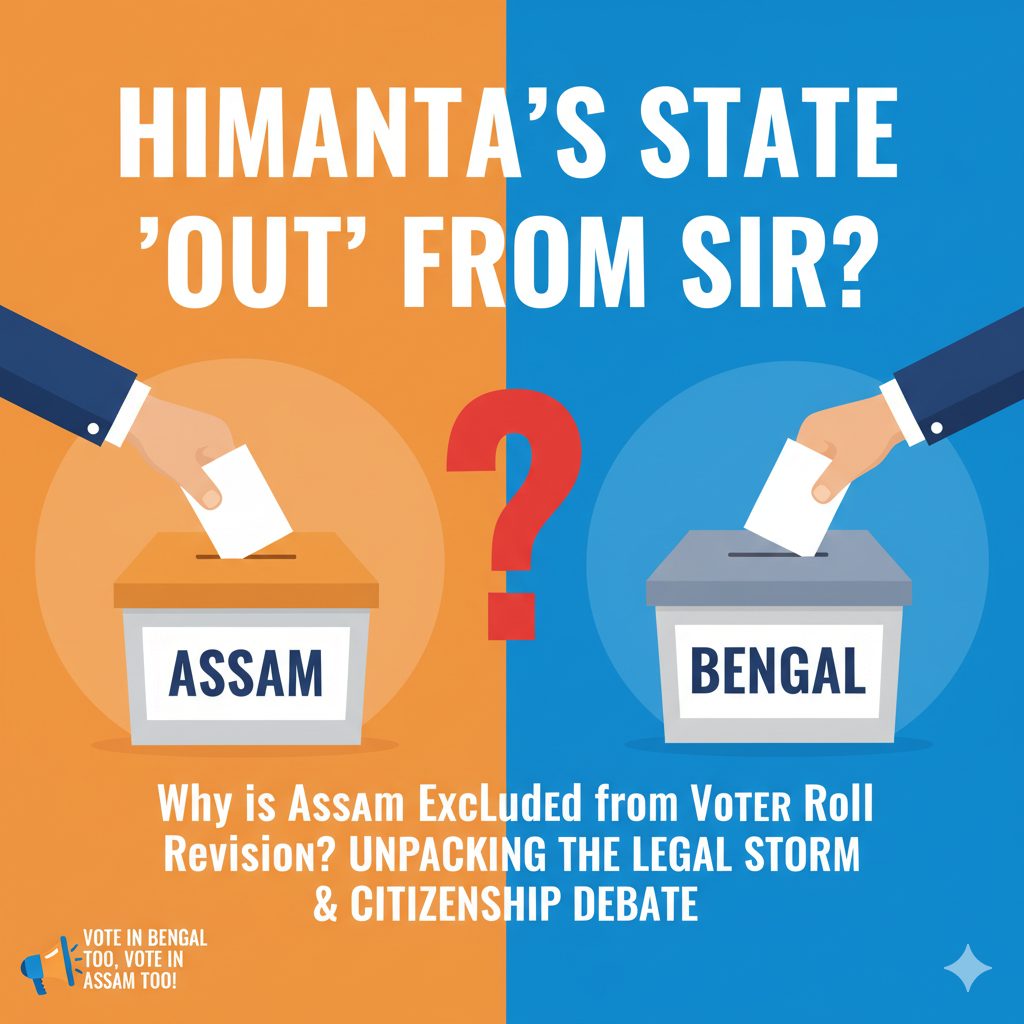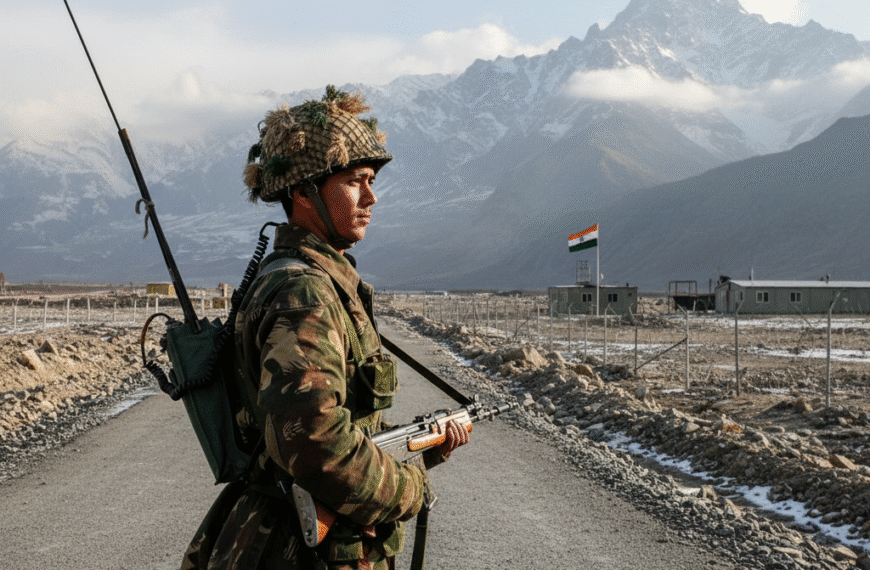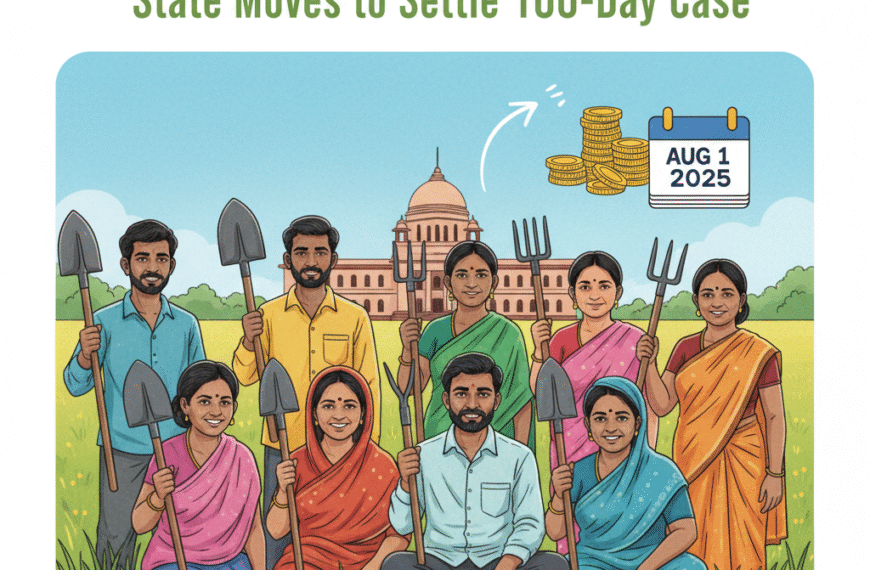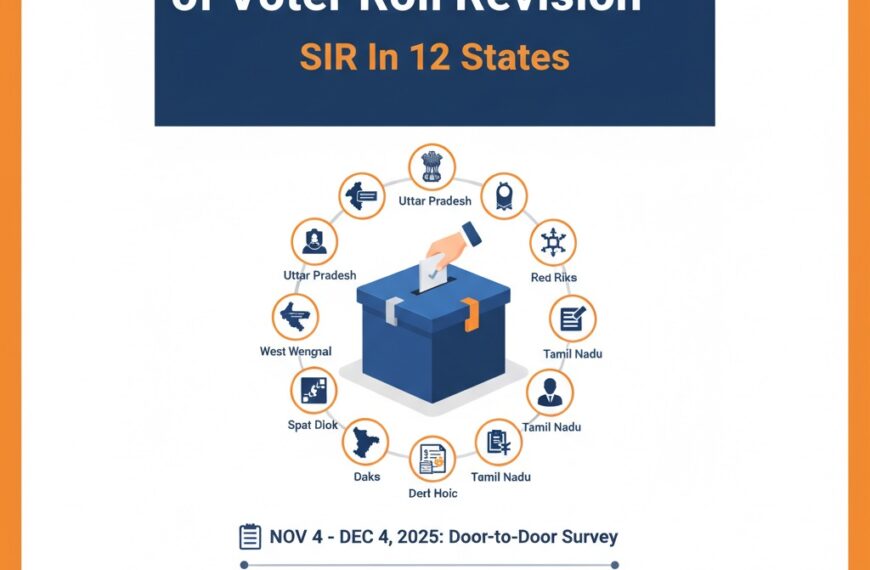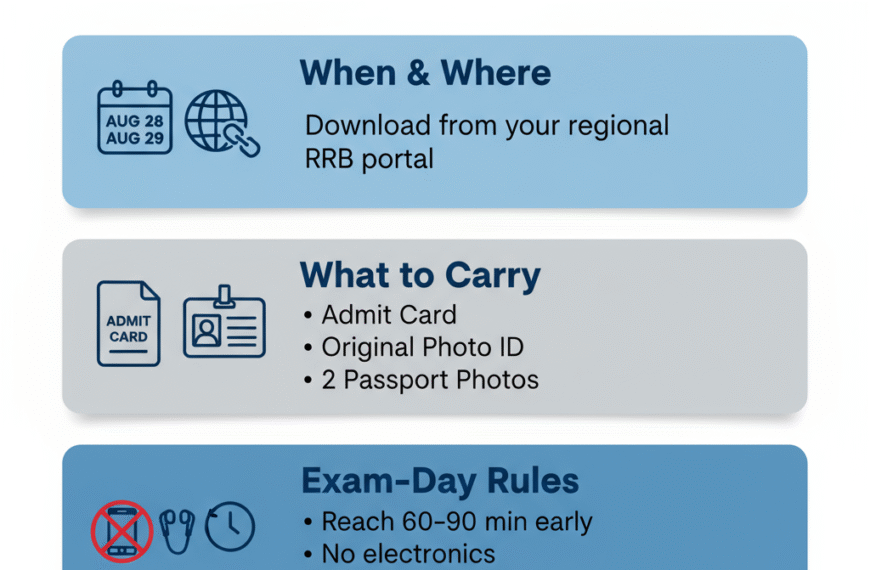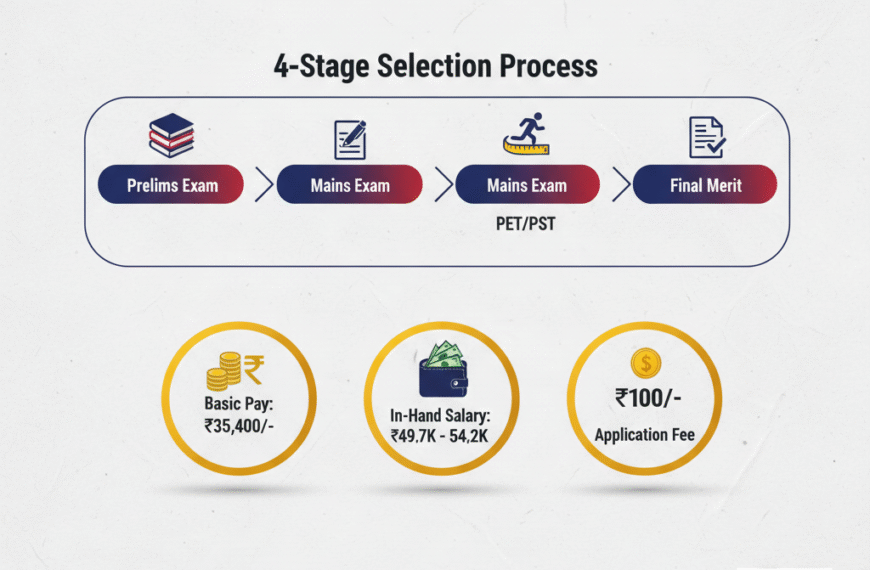Explore the political and legal storm around the Special Intensive Revision (SIR) of voter rolls. Discover why Assam, a key state for CM Himanta Biswa Sarma, was initially excluded despite the “Vote in Bengal too, vote in Assam too” context, and the citizenship laws that make its electoral process unique.
The Slogan and the Storm
The phrase “Vote in Bengal too, vote in Assam too!” rings with a political resonance that ties the two crucial Eastern Indian states together, especially during election cycles. It signifies the shared electoral focus, the common political narratives of migration and citizenship, and the high-stakes battles for regional dominance that often involve Assam’s Chief Minister, Himanta Biswa Sarma.
Yet, a major recent development has drawn a sharp distinction between the states: the Election Commission of India’s (ECI) decision to exclude Assam from the Special Intensive Revision (SIR) of electoral rolls initially. This move, while perhaps procedural, has been weaponized in the political arena, prompting a critical question: Why is Himanta’s state ‘out’ from SIR when other poll-bound states were included? This blog post dives deep into the complex legal frameworks, political realities, and the shadow of the National Register of Citizens (NRC) that make Assam’s electoral process uniquely challenging, even for a seasoned politician like Himanta Biswa Sarma. Understanding this exclusion is key to grasping the future of voting rights and citizenship debates in India’s Northeast.
The Special Intensive Revision (SIR): What It Is and Why It Matters
The Special Intensive Revision (SIR) is a critical exercise conducted by the Election Commission of India to update and purify the voter list. It typically involves a house-to-house verification process, providing an opportunity for citizens to register, get names corrected, or object to the inclusion of ineligible voters (like deceased persons or those who have moved).
Why SIR is a High-Stakes Game
- Ensuring Accuracy: The primary goal is to make the electoral roll an accurate reflection of eligible voters, a foundational aspect of fair democracy.
- Addressing ‘Bogus Voters’: In politically charged environments, particularly in Assam, which has a long history of debates over “illegal immigrants,” the SIR becomes a tool to address the alleged presence of ‘bogus voters’—a concern frequently raised by CM Himanta Biswa Sarma himself.
- Political Significance: A revised, ‘purified’ voter list is seen as either a guarantee of legitimate voting or, conversely, a potential tool for disenfranchisement by opposition parties.
For Himanta Biswa Sarma, who has been vocal in his support for rectifying electoral rolls, the SIR is not just an administrative task but a political imperative aimed at protecting the interests of the indigenous people of Assam. He has consistently championed a stronger verification process, stating, “When there is SIR and the names of voters are linked with their Aadhar numbers, the problems will disappear.”
The Legal Blockade: Why Assam is Different
The core reason why Himanta’s state is ‘out’ from SIR—at least initially—lies in the unique legal and constitutional status governing citizenship and electoral processes in Assam. The ECI itself cited the state’s distinct legal framework.
The Shadow of Section 6A and NRC
Assam operates under Section 6A of the Citizenship Act, 1955, a provision exclusive to the state that was introduced as a result of the Assam Accord of 1985. This section sets the cut-off date for determining citizenship as March 24, 1971, differing from the rest of India.
- The NRC Factor: Further complicating matters is the ongoing, Supreme Court-monitored process of updating the National Register of Citizens (NRC) of 1951. The final NRC list, published in 2019, excluded nearly 1.9 million people. However, the Supreme Court has not yet accepted this final list, meaning the process is legally incomplete.
- ECI’s Caution: The Election Commission’s decision to delay the nationwide SIR in Assam is a cautious move. Conducting an intensive voter roll revision while the fate of nearly 2 million people is still in legal limbo due to the NRC/Section 6A provisions risks either:
- Disenfranchising people who may eventually be deemed citizens.
- Legitimizing entries that the NRC process may later invalidate.
In essence, Assam is stuck between two major, incomplete citizen-verification processes: the NRC and the SIR. The ECI’s stand is to await clarity on the fundamental question of who is a citizen before proceeding with the revision of who is a voter.
Political Backlash and Regional Dynamics
The debate over the SIR exclusion has quickly spiraled into a political controversy, reflecting the deep polarisation over citizenship and migration in the region. The slogan, “Vote in Bengal too, vote in Assam too!” highlights the contrast: Bengal’s revision proceeds, while Assam’s is stalled.
A Tale of Two States: Bengal and Assam
| Feature | West Bengal | Assam |
| Voter Roll Revision | Included in ECI’s general SIR order. | Excluded from the general SIR order. |
| Citizenship Law | General provisions of the Citizenship Act. | Governed by the unique Section 6A and the ongoing NRC process. |
| Political Stance | Focus on electoral battlegrounds and local issues. | Dominated by the overarching issue of ‘illegal immigration’ and citizenship. |
West Bengal Chief Minister Mamata Banerjee has often used the NRC and SIR as a political tool, alleging that the SIR process is being used to remove voters from her state. Meanwhile, CM Himanta Biswa Sarma maintains that his government welcomes a thorough SIR, underscoring the political consensus in Assam (among the ruling parties) on the need for electoral roll correction.
Trust-Building Quote: “Under India’s Citizenship Act, there are separate provisions for Assam. Secondly, under the supervision of the Supreme Court, the checking of citizenship there is about to be completed. The SIR order notified for the entire country would not have been applicable to Assam under such circumstances. So, separate orders for revision will be issued for Assam,” said Chief Election Commissioner Gyanesh Kumar, confirming the legal and contextual distinction that led to the exclusion.
The Opposition’s Vigilance
The Congress in Assam, while welcoming the ECI’s clarification, has remained vigilant. They have trained thousands of booth-level agents and are prepared to launch a public awareness campaign if they detect any attempt to “politically assist any party by extensively removing names from the voter list under the guise of corrections,” as stated by a party leader. This highlights the sensitivity surrounding the electoral process in the state.
The Path Forward: What Next for Assam’s Voters?
The ECI has made it clear that a separate order for the Special Intensive Revision will be issued for Assam once the legal and procedural hurdles related to the NRC and Section 6A are addressed.
Key Steps Expected
- Legal Clarity: The Supreme Court’s final word on the acceptance or required re-verification of the NRC list will be paramount.
- Separate SIR Timeline: The ECI will likely issue a notification with a distinct timeline and procedure for Assam, acknowledging its unique demographic and legal challenges.
- Aadhaar Linkage: Given CM Himanta Biswa Sarma’s repeated advocacy, a strong push for linking voter ID with Aadhaar, as suggested in the broader national context, may become a focus to address the issue of multiple/bogus entries.
Suggestion for Infographic: A flowchart titled “Assam’s Electoral Rollercoaster” showing three main boxes: 1. Assam Accord (1985) & Section 6A → 2. Supreme Court-Monitored NRC Process (Incomplete) → 3. ECI’s Decision: No General SIR for Assam (Pending Separate Order). This visual would clearly outline the unique path.
Conclusion: The Final Verdict is on Hold
The question of why Himanta’s state is ‘out’ from SIR is less about political favouritism and more about the intractable legal reality of the citizenship debate in Assam. The state’s history, cemented by the Assam Accord and the ongoing NRC process, creates a unique legal thicket that the Election Commission cannot bypass with a general, nationwide revision order.
For Chief Minister Himanta Biswa Sarma, the political objective remains clear: secure a ‘pure’ electoral roll. For the ECI, the mandate is to ensure an accurate roll without prematurely disenfranchising millions whose citizenship status is still sub judice. Until the judicial and administrative dust settles on the NRC, Assam’s electoral fate will continue to be charted on a separate, more complicated map.
Call to Action (CTA): Stay informed on the interplay of citizenship laws and electoral rights. Share this article to fuel the debate on fair representation in the Northeast, and [Click here to read our detailed analysis on the future of NRC in Assam] (Internal Link: /nrc-assam-future-analysis).
External Links (Plain Text):
- Election Commission of India Official Website (for electoral roll processes):
https://eci.gov.in/ - Supreme Court of India (for updates on the NRC case):
https://www.sci.gov.in/ - [Read how the Assam Accord shaped the state’s politics] (Internal Link: /assam-accord-political-history)
The video SIR को लेकर Mamata Banerjee का BJP पर बड़ा आरोप | Himanta Biswa Sarma is relevant because it directly addresses the political controversy surrounding the SIR process and includes allegations made by Mamata Banerjee against the BJP and Himanta Biswa Sarma.
